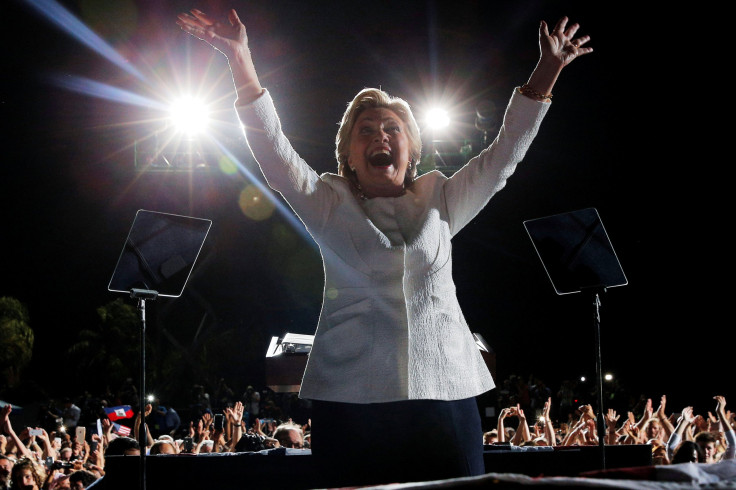Popular Vote Update: Why Hillary Clinton Didn't Win A Majority Of The Electorate

Much to her dismay and that of her supporters or those who simply dislike President-elect Donald Trump’s victory, Democrat Hillary Clinton still maintains a massive lead in the popular vote by more than 1.3 million over the Republican winner and commander-in-chief in waiting, according to the latest tallies by non-partisan group Cook Political Report.
Trump, who blew past the required 270 electoral votes to become president, currently has 61,486,735 votes, or 46.6 percent, compared to Clinton’s 62,825,754 votes, or 47.9 percent. The current difference between the candidates, of which a final figure won’t be known until all votes are accounted for, has grown every day since the election and Clinton has well surpassed Democrat Al Gore’s popular vote-winning margin of more than 547,000 in 2000.
That’s led many around the country to question Trump’s legitimacy as president - with hashtags and trends on social media sites like “Not My President” becoming nationally recognized and regularly used by his detractors – and the Electoral College’s place in the country’s political system. Many have called it draconian or not representative of the voters’ wishes.
However, Clinton does not have an outright majority of votes, but rather a plurality, as pointed out by Wall Street Journal reporter Byron Tau Thursday.
She won 47.9%, which is neither a majority, nor "more than half." It is a plurality. https://t.co/8Pw8yuLkgO
— Byron Tau (@ByronTau) November 17, 2016
Due to third-party candidates like Libertarian Gary Johnson, the Green Party’s Jill Stein, and independent Evan McMullin earning more than 6.9 million votes combined, Clinton does not and is unlikely to exceed the 50 percent majority threshold.
And the latest election results show that Trump, not Clinton, owns the plurality of votes in the 13 swings states that ultimately handed him a 306-232 victory in the Electoral College. The billionaire and first-time politician has 870,541 more votes combined in the swing states with a grand total of 22,067,465 to Clinton’s 21,196,924. In his victory, Trump managed to swipe the key states of Ohio, Florida, and Pennsylvania to complete one of the biggest upsets in American political history. The third-party candidates picked up more than 2.2 million swing-state votes.
Critics of the Electoral College, like soon-to-retire Democratic California Sen. Barbara Boxer, are hoping to abolish it and make the popular vote the ultimate decider of presidential elections. Boxer proposed a bill Tuesday that calls for an amendment to the Constitution – the only way the Electoral College can be discontinued – that is unlikely to pass in a Republican-controlled Congress.
"In my lifetime, I have seen two elections where the winner of the general election did not win the popular vote," Boxer said in a statement. "The Electoral College is an outdated, undemocratic system that does not reflect our modern society, and it needs to change immediately. Every American should be guaranteed that their vote counts."
In the country’s history, there have been four other times a candidate claimed the popular vote but lost the Electoral College. One example is the 1824 election between eventual winner John Quincy-Adams and loser Andrew Jackson, who won the popular vote and had a plurality, but not a majority, of the Electoral College.
© Copyright IBTimes 2024. All rights reserved.




















